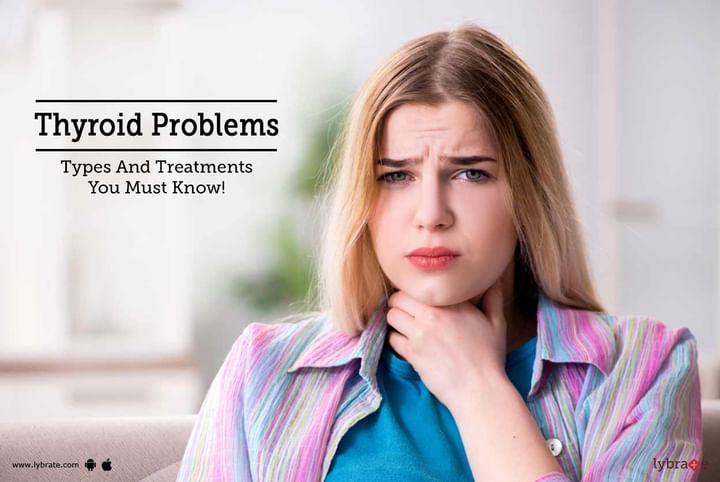Thyroid Problems - Types And Treatments You Must Know!
The thyroid gland is a small butterfly-shaped gland placed just in front of the windpipe. Though the size of the gland is small, it performs a very important function in the body. The thyroid gland is responsible for producing hormones that regulate metabolism and growth. Some of the most common types of problems that can affect the thyroid gland are:
Hyperthyroidism
This is marked by an overactive thyroid gland. Hyperthyroidism can be caused by Graves’ disease, toxic adenomas, inflammation of the thyroid gland, a malfunctioning pituitary gland or cancerous growths in the thyroid gland. Treatment of this condition depends largely on the patient’s age, overall health and severity of the issue. It can take the form of radioactive iodine therapy or surgery. Beta blockers and other thyroid medication may also be used to treat this condition.
Hypothyroidism
This condition is marked by an underactive thyroid gland wherein the gland does not produce enough thyroxine hormone. It can lead to weight gain and make the person feel tired and depressed. The most common cause of hypothyroidism is an autoimmune condition known as Hashimoto’s disease. In this case, the body begins producing antibodies that destroy the thyroid gland. Hypothyroidism can also be triggered by radiation to the neck, side effects of certain types of medication, thyroid surgery or an excess amount of iodine in the person’s diet. Hypothyroidism can be treated with medication but this medication usually needs to be taken for life.
Goitre
Goitre refers to a swelling of the thyroid gland. This can be caused by hyperthyroidism as well as hypothyroidism. It can also be caused by a lack of iodine or too much iodine in the patient’s diet. If the goitre is too small to cause discomfort, a wait and watch approach may be taken. Else, thyroid medication may be prescribed to treat the underlying condition.
Thyroid Cancer
Cancer that originates in the thyroid gland is known as thyroid cancer. This is not a very common type of cancer. Its treatment depends largely on the patient’s age, overall health and stage of cancer. It is usually treated with surgery to partially or completely remove the thyroid gland or radiation therapy. In cases of aggressive cancer, chemotherapy may also be used. In case the thyroid gland needs to be completely removed, the patient will need to take hormone replacement drugs. They will also need vitamin D and calcium supplements.



+1.svg)
